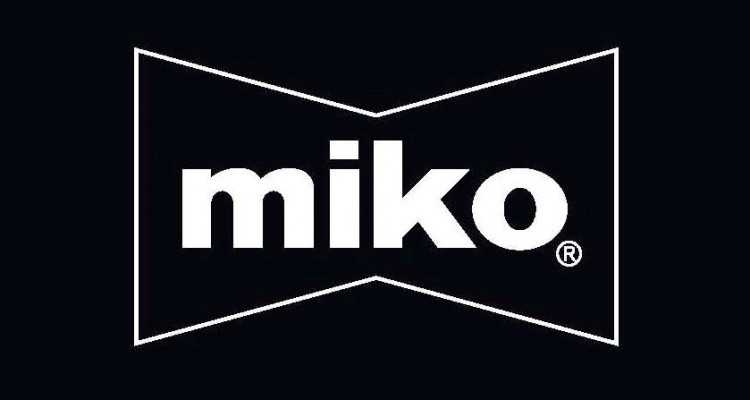TURNHOUT, Belgium – Miko has reported its annual results for the year 2018. The company recorded revenue growth of 2.5 % to EUR 209.9 million in 2018. Excluding one-time factors, EBIT increased by 5.7 % while EBITDA remained the same and the net profit increased by 8.42 %. (*). Without a correction for one-time factors, EBIT, EBITDA and net profit decreased by 15.4 %, 11.8 % and 18 % respectively.
Miko has confirmed its healthy financial position with an net debt/EBITDA ratio of 1.33. The company is proposing a 10% dividend increase for 2018
The Miko Group focuses on two core activities: coffee service for the food and catering industry and the production of plastic packaging for the food and health-care industry.
The coffee segment recorded a turnover of EUR 110.3 million during 2018. This is 2 % up on the previous year and accounts for 52.6 % of Group turnover. EBITDA decreased by 17.48 %, but effectively increased by 4.1 % following abstraction of several factors (*). Coffee consumption was also impacted by the hot summer of 2018.
Investments in the coffee segment amounted to EUR 21.8 million. This included the purchase of coffee machines which were installed in loan or lease arrangements, as well as several acquisitions which were completed in 2018.
The plastics segment recorded a turnover of EUR 99.6 million, a 3 % increase compared to last year. That means this segment accounts for 47.4 % of overall turnover. Turnover increased primarily in Poland and Germany. EBITDA for the plastic packaging department decreased by 3.7 %. This department saw investments to the tune of EUR 7.4 million in 2018.
The Board of Directors is proposing to the General Meeting that a gross dividend of EUR 1.87 be paid per share, which is 10 % more than last year.
(*) These relate to one-time negative factors in 2018, including the acquisition of Maas Denmark and the IFRS purchase price allocation in respect of acquired inventories, having a one-time negative effect on EBIT and EBITDA of EUR 1.15 million and EYR 1.07 million respectively. In 2017, two large contracts in Denmark had a one-time positive effect on EBIT and EBITDA of EUR 2.1 million and EUR 2.2 million respectively. Moreover, the Belgian Summer Accord, in which the rate of taxation decreased from 33.9 % to 25 %, resulted in a one-time increase in net profit in 2017 by EUR 950 thousand.
Key Events
Within the company’s strategy of continued growth in Scandinavia, two acquisitions were concluded in the Coffee service department:
– Miko announced the acquisition of Denmark-based coffee-service company “Maas” in July 2018. The company was literally on the verge of bankruptcy. Together with the new management team, Miko decided to relaunch the company on the basis of a 75:25 ownership ratio. Restructuring measures have resulted in a workforce reduction from 75 to 55. The aim is to achieve break-even EBITDA over 2019.
– Miko acquired Norwegian company “Kaffebryggerriet” in November, an Oslo-based coffee service operator which focuses on the office market. The company will be merged with Miko’s partner “A:KAFFE”. Following this operation, turnover will amount to around EUR 7 million.
August also saw the announcement of the acquisition of UK-based “The Office Coffee Company”. The company realises a turnover of almost EUR 2 million with a workforce of 16. The aim of this acquisition is to consolidate the presence in the UK office market and therefore to be less dependent on the catering sector.
A large contract was concluded in the Plastics processing department in the course of 2018, which demanded significant pre-investments to the tune of EUR 1.2 million. This involved a new technology known as “inline extrusion”. The additional turnover deriving from this new project will not be visible until the second half of 2019. A further EUR 750,000 was invested in a second new technology: “compression moulding”. This technology makes it possible to extrude lighter plastic containers at a lower pressure and lower energy consumption.
The Board of Directors was confronted with various changes in 2018. Mr Flor Joosen took over the role of Chairman of the Board of Directors in March, following Mr Chris Van Doorslaer who passed away at the end of 2017. Mr Joosen is owner of food manufacturer Joosen-Luyckx and caviar producer Aqua Bio, among other companies. Ms Inge Bruynooghe was also appointed to the position of Director. Ms Bruynooghe built a successful international career at Philips, and also has seats on the Boards of Directors of “Flanders Make” and “Open Manufacturing Campus” in Turnhout.
Prospects
The acquisitions, the large contract and the investments in new technology in the Plastics processing department will undoubtedly boost the company’s results in 2019. The impact of Brexit, however, remains uncertain.
“To illustrate our confidence in the future, we are again proposing a 10% dividend increase for 2018, a two-figure dividend growth which we have been achieving over many years. This is also confirmed by our budgeted investments amounting to EUR 19.3 million,” comments Frans Van Tilborg, Miko Group CEO.
About Miko
Miko has been active in coffee service for over 200 years and in plastic packaging for some 45 years now, and was floated on Euronext Brussels in 1998. Miko follows a “two-pillar strategy” in which its core activities – coffee service and plastic packaging – are practically independent entities with their own management, so that each activity can follow its own growth path.
The Group posted a turnover of EUR 210 million in 2018, with the coffee service and plastics processing division accounting for respectively 53 % and 47 % of this figure. Miko is an international group with companies in Belgium, France, UK, the Netherlands, Germany, Denmark, Norway, Sweden, Poland, the Czech Republic, Slovakia, Indonesia and Australia.










